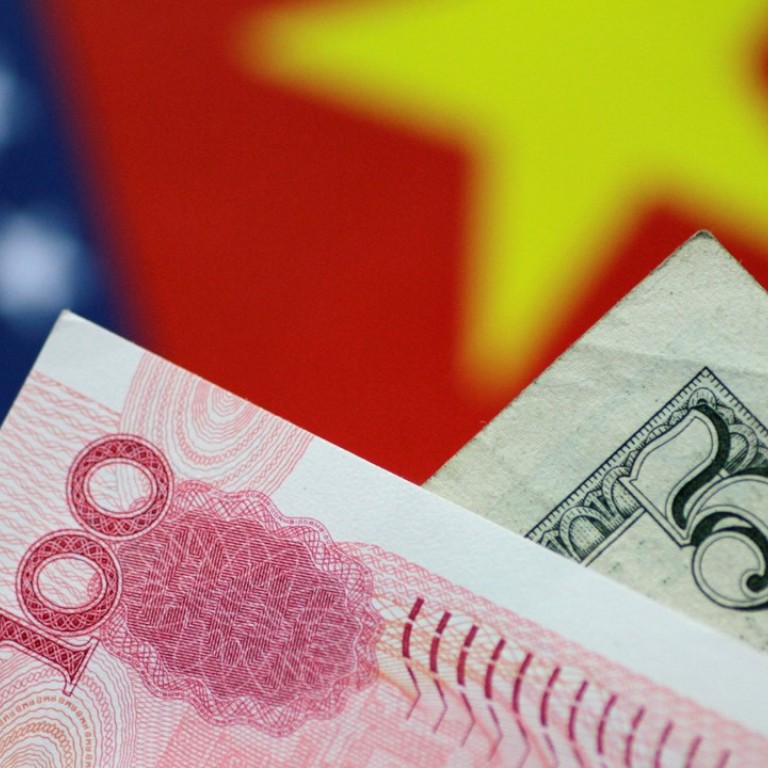
Distractions over, Beijing revives its global currency ambitions
Profound change in global monetary system could come sooner than expected, analyst says
Beijing is using Hong Kong as a beachhead to once again try to expand global use of the yuan, with the currency appearing to be holding its value and returning to market favour.
The big moves in the last month include the Hong Kong stock exchange’s launch of a gold futures product traded in yuan; an agreement between China and Russia for a joint US$10 billion fund to promote bilateral settlements in yuan and roubles; and Hungary’s first sale of “Panda bonds” in China to raise 1 billion yuan (HK$1.16 billion).
China is also close to launching crude oil futures in Shanghai, a plan that seemed just a few months ago to have been shelved.
The developments all took place after Beijing managed – at least on the surface – to stabilise the yuan and end market panic about the threat of a yuan crash.
The yuan’s share of international payments also rose to 1.98 per cent in June, from 1.61 per cent in May and 1.6 per cent in April, according to the Society for Worldwide Interbank Financial Telecommunication (SWIFT).
Gavekal Research chief executive Louis-Vincent Gave said Beijing’s push to make the yuan a regional trading and reserve currency was potentially the single most important factor on the global market over the long run.
“That’s a profound change in the global monetary system,” Gave said. “It can happen much quicker than people expect.”
China’s ambition to make the yuan an anchor currency, or even replace the greenback, received a shot in the arm after the 2008 global financial crisis and the US Federal Reserve’s quantitative monetary easing raised doubts about the US dollar.
Beijing views the dollar’s dominance as a sign of an outdated global system that fails to recognise China’s importance.
Central bank governor Zhou Xiaochuan argued publicly in 2009 that the world needed a new global monetary system to dethrone the dollar, with one solution to create a “super sovereign” currency based upon Special Drawing Rights, an accounting unit of the IMF.
Since then, China has promoted the use of its currency in cross-border trade and investment, signed currency swap deals with dozens of central banks and created several offshore yuan markets, including in Hong Kong, Singapore and London.
But the yuan’s rise was halted by two shocks in summer 2015 – the stock market rout and the central bank’s sudden 2 per cent devaluation of the currency.
Confidence and trust in the currency were battered and the yuan weakened steadily against the US dollar until the end of last year. Concerns were deepened by Beijing’s increased meddling in the yuan’s value and scrutiny over currency outflows.
Nevertheless, the IMF agreed in December 2015 to include the yuan in its SDR basket and made it a nominal currency on October 1, 2016, along with the dollar, the euro, the pound and the yen.
Since then, the central government has put the yuan’s internationalisation on the back-burner to focus more on the immediate need to maintain market stability and avoid financial turmoil.
Howhow Zhang, a director of KPMG’s China global strategy group, said the yuan’s road to becoming a true global currency was a “multi-year, if not, a multi-decade project”, with Beijing not willing to sacrifice wider economic stability for the strategic goal.
Along the way, China’s Belt and Road Initiative could be one of five drivers of the yuan’s long-term use offshore, with the others including the opening of the country’s onshore financial markets to foreign investors, and the development of Hong Kong as a super “intermediator”, SWIFT said.
Standard Chartered chief China economist Ding Shuang said one area where China was seeking to boost the yuan’s use was in infrastructure deals.
Ding said that instead of setting specific targets, Beijing was taking a pragmatic approach to expanding the yuan’s presence.
The yuan’s global reach is still limited, with over three-quarters of its offshore activity occurring in Hong Kong, according to SWIFT.
But the city could be vital for the yuan’s future especially when the mainland’s capital account is not open.
Gave said that if, for example, a Russian company was paid in yuan for selling oil or gas to China, it could open a yuan account in Hong Kong and even buy gold contracts “without ever having to go through the US dollar”.
“You don’t need to bring [the yuan] into China ... as long as your money won’t be locked in Hong Kong, then you are in fine shape,” he said.

